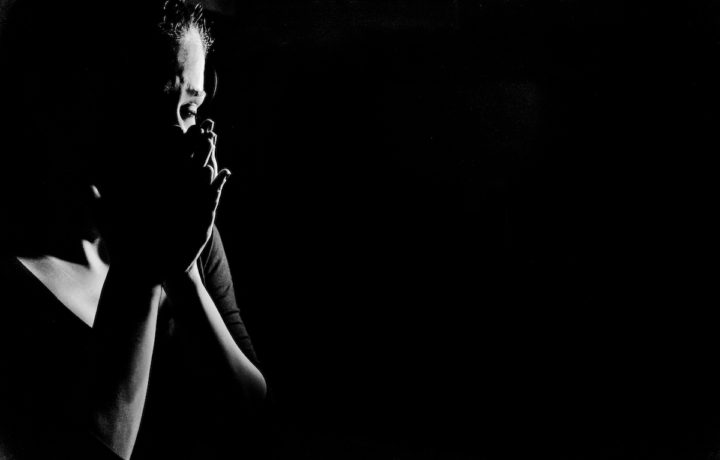Despite the harrowing testimonies presented in Surviving R. Kelly, a six-part, six-hour docuseries chronicling nearly three decades of singer-songwriter-producer R. Kelly’s penchant for physically, psychologically, and sexually violating Black girls and women, streams of his music increased by 16% since the docuseries first aired on Thursday, January 3, 2019.
This statistic is a gut punch.
The surge in streams coupled with social media responses including but not limited to victim blaming, slut-shaming, and #whataboutwhitemen posts, quickly reminded me that both historically and contemporarily, too few care about violence against Black women and girls. Malcolm X’s oft-cited remarks quickly rush to the fore: “the most disrespected woman in America, is the Black Woman. The most unprotected person in America is the Black Woman. The most neglected person in America, is the Black Woman.”
Reactions to the docuseries confirmed the blaring truth of misogynoir as pervasive, historically rooted, and entrenched in how American society responds to the violation of Black girls and women. Misogynoir, a term coined by Dr. Moya Bailey and co-proliferated with Trudy aka @thetrudz, “describes the anti-Black racist misogyny that Black women experience.” This term disturbingly encapsulates the distrustful and hateful responses to the exposé as well as the striking inertia around holding Kelly, his co-conspirators, and his enablers accountable.
R. Kelly is not singular in his predation, but he and far too many responses to his record of sexual and gender violence spotlight the challenge of centering and addressing Black women’s and girls’ victimization. The docuseries was a mere six hours in length, and people complained about “this much attention” being given to someone who is actively harming Black women. Some watching alluded to Kelly’s victims being “fast” and dismissed their pain as self-inflicted. Others bore witness to this archive, believed the women, and still streamed his music.
The misogynoir runs deep.
The view of Black women and girls in the United States as hypersexual, lascivious, untrustworthy, aggressive, impervious to pain, and domineering calcified during the trans-Atlantic slave trade and operated as a tool during chattel slavery to subjugate and “justify” the exploitation of Black women and girls. It unleashed distinct forms of terror on Black female flesh and psyches.
The perpetuation and afterlives of these stereotypes permeate popular culture, how we view and mobilize around anti-Black state violence against Black women and girls, Black childbearing people’s birth outcomes, and even the harsh disciplining of Black girls in schools. These stereotypes also affect Black intracommunal dynamics and responses to gender, sexual, and ableist violence. Confronting intracommunal forms of violation such as intimate partner violence, anti-trans violence, street harassment, molestation, and incest requires holding those we love and/or commune with accountable for irrevocable harm.
Publicly wrestling with alarming rates of intracommunal sexual and gender violence always runs the risk of emboldening anti-Black racist arguments about inherent Black depravity and criminality. This reality often results in the silencing of Black women and girls, and even worse a culture of blaming, shaming, and disbelief. A pro-Blackness that requires the silence of Kelly’s victims for fear of what existing racists may use or do, however, is frankly untenable and anti-Black. Pro-Blackness, as a liberatory politic necessitates the inclusion of all Black lives and struggles against any and all forms of harm against Black people.
Surviving R Kelly and the varied responses to it are part of an emergent, contemporary archive of violence against Black women and girls. Executive-produced by writer, activist, and cultural critic dream hampton, the docuseries featured Kelly’s victims, family members, employees, former teachers, journalists, a scant few celebrities, and parents of Black women formerly and currently held in Kelly’s violent sex/rape cult. It aligns with a tradition of Black women and girls longing to tell. Gut-wrenching stories of sexual violence against Black women and girls are an inextricable part of U.S history. With over 40% of Black girls currently reporting experiencing coercive sexual contact, sexual assault, or rape by the age of 18, a reckoning is long overdue. No amount of “good” music should detract us from what this still-forming archive demands that we recognize.
When the archive speaks through the testimonies of Black women and girls and we refuse to listen, the lives and well-being of those women and girls are at stake. R. Kelly is an active threat to Black women and girls. The docuseries seeks to stop a history of Black women and girls not being believed from repeating itself. How we ultimately respond to this archive reflects our commitment to writing a new history.
Treva B. Lindsey is an Associate Professor of Women’s, Gender, and Sexuality Studies at The Ohio State University. Her first book is Colored No More: Reinventing Black Womanhood in Washington D.Cis a Choice 2017 “Outstanding Academic Title.” She is currently working on her next book project tentatively titled, Hear The Screams: Black Women, Violence, and The Struggle for Justice. Follow her on Twitter at @divafeminist.
